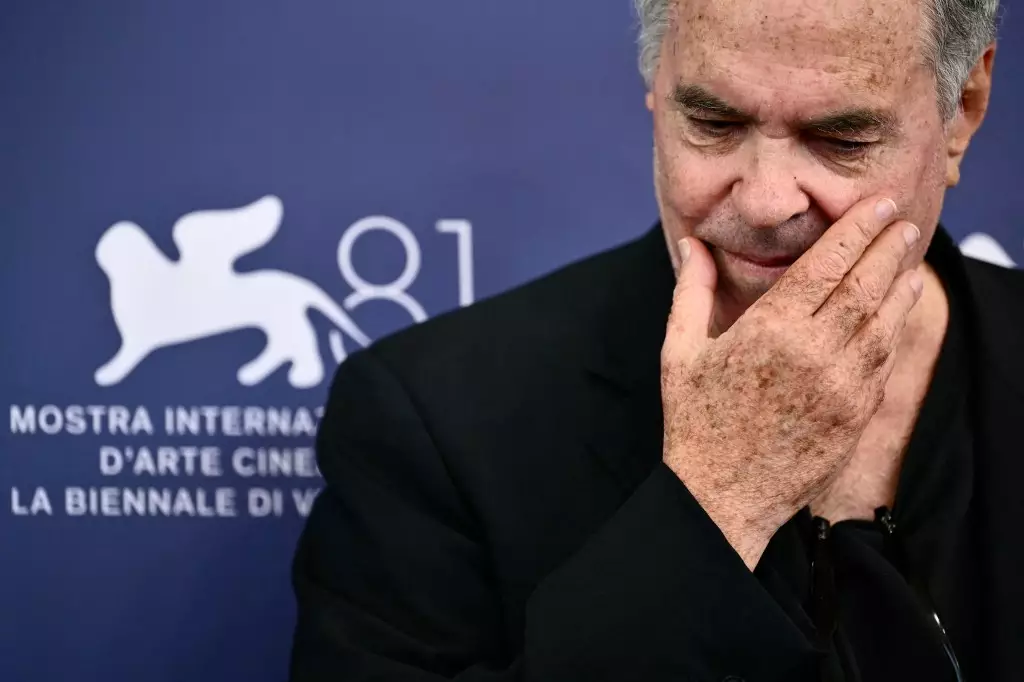Israeli director Amos Gitai’s latest work, “Why War,” challenges the traditional narrative surrounding the Israel-Palestine conflict. Gitai emphasizes the need to view war in a broader context, beyond the confines of a single regional conflict. The film draws inspiration from the correspondence between Albert Einstein and Sigmund Freud, delving into the deeper questions of human nature and the propensity for violence. By shifting the focus away from the specificities of the Israeli-Palestinian relationship, Gitai invites viewers to consider war as a universal phenomenon that requires introspection and reflection.
Featuring a star-studded cast including Irène Jacob, Mathieu Amalric, and Micha Lescot, “Why War” takes audiences on a poetic journey across various cities including Vienna, Tel Aviv, Berlin, and Paris. Gitai describes the film as a “poetic associative voyage,” blending reenactments, historical images, and acted scenes to explore the psychological impact of conflict. By grounding the narrative in the intellectual legacy of Einstein and Freud, Gitai crafts a thought-provoking meditation on the root causes of war and violence.
Despite facing calls for boycott from some Italian cultural figures, Gitai remains steadfast in his commitment to fostering dialogue and understanding. Critics allege that Gitai’s association with production companies tied to Israeli state policies compromises the integrity of his work. However, Gitai dismisses these accusations, highlighting the independent nature of his film and his personal advocacy for peace. He underscores the importance of engaging with art as a means of transcending political divisions and promoting empathy.
Gitai’s vision for peace in the Israel-Palestine conflict is contingent upon a change in leadership on both sides. He argues that the entrenched positions of Hamas and the Netanyahu government perpetuate a cycle of violence and division. By calling for a reevaluation of leadership and a commitment to dialogue, Gitai envisions a future where reconciliation is possible. He acknowledges the complexities of the conflict but remains optimistic that meaningful change is within reach.
In “Why War,” Gitai challenges the prevailing narratives that fuel animosity and perpetuate conflict. By eschewing graphic depictions of violence and focusing on the underlying causes of war, Gitai encourages viewers to rethink their perspectives on the Israel-Palestine conflict. He underscores the role of media in shaping public opinion and calls for a more nuanced understanding of the complexities involved. Through his work, Gitai advocates for a new approach to peacebuilding that prioritizes dialogue, empathy, and mutual respect.
Amos Gitai’s “Why War” offers a unique perspective on the Israel-Palestine conflict, urging audiences to transcend conventional boundaries and embrace a more holistic understanding of war and violence. By reframing the narrative and challenging entrenched beliefs, Gitai opens up space for dialogue and reflection. As he navigates the complexities of the conflict, Gitai remains committed to his vision of a more peaceful and just world. His work stands as a testament to the power of art in fostering understanding and healing in the face of adversity.


Leave a Reply